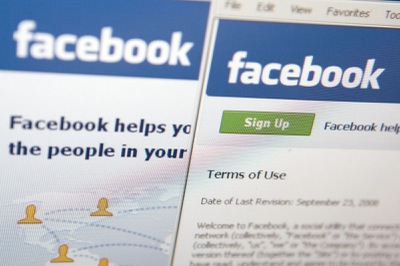Saturday, Dec. 29, 2012 | 2 a.m.
MENLO PARK, Calif. — In just eight years, Facebook signed up more than half the world’s Internet population.
Now it’s going after the rest.
Facebook wants to reach every person on the Internet, whether they are logging on from a laptop in Los Angeles, an iPhone in Tokyo or a low-tech phone with a tiny screen in Nairobi.
It’s parachuting into market after market to take on homegrown social networks by currying favor with the locals and venturing where many people have spotty — if any — access to the Internet.
In Japan, it lets users list their blood types, which the Japanese believe give insight into personality and temperament, much like astrological signs in the Western world. In Africa, Facebook markets a stripped-down, text-only version of its service that works on low-tech mobile phones.
International growth is crucial to maintain its dominance as the world’s largest social network. The company’s scorching pace of growth has cooled, especially in the United States. Facebook must coax users to sign up — and make sure it remains popular with the users it already has — or risk being knocked from its lofty perch.
“We’re not a company that is just trying to add more people,” said Chris Cox, Facebook’s vice president of product. “What we are trying to do is build a service that everyone in the world can use.”
But overseas growth that once seemed to come so easily is slower now. Facebook already has saturated most major markets around the globe. Eight out of 10 Facebook users are outside of the U.S.
“I don’t think that Facebook has a chance of attracting another billion users,” Wedbush Securities analyst Michael Pachter said.
Inside Facebook’s Menlo Park headquarters is a small army out to prove naysayers wrong. Above their desks, they have hung flags from around the world that represent their nationalities. They obsessively scan screens that track user growth around the world.
They cheered and popped open champagne in September when the number of active Facebook users crossed 1 billion. But the moment of jubilation quickly passed as they redoubled their efforts to spread Facebook around the globe.
Naomi Gleit is the soft-spoken, headstrong 29-year-old product manager in charge of growth at Facebook. She says Facebook’s future is on mobile devices, the medium by which most people will experience the Web in coming years. Facebook now works on more than 2,500 phones, helping it gain a foothold in emerging markets. And it is forging relationships with mobile phone operators around the world.
Gleit’s 150-member team has boots on the ground in far-flung places armed with low-tech phones and cheap data plans. Even team members here carry Nokia phones alongside their iPhones to update their status or check their News Feed.
“We originally built a product for ourselves,” Gleit said. “This is different. Now we need to understand the experience of users who are not like us.”
Analysts say Facebook already has established an impressive track record of uprooting entrenched competitors. In Britain, it displaced the dominant social network Bebo, forcing AOL to sell it at a huge loss. In Germany, Facebook overtook the homegrown StudiVZ. Facebook even broke Google social network Orkut’s stranglehold on Brazil and India.
In 2009, it launched a clever tool to help Facebook users find their Orkut friends on Facebook and instantly send them friend requests. Two years later, it swiped Google’s top executive in Latin America, Alexandre Hohagen. Facebook sprinted ahead of Orkut one year ago and now has 61 million active users in Latin America’s largest country.
Facebook is treating India as a test lab for how it can spread in other emerging markets such as Indonesia. Facebook, which has offices in Hyderabad, India, has grown from 8 million users in 2010 to 65 million users today. It is aggressively targeting India’s youth. A few hundred young Indian programmers recently jammed a Facebook hackathon at a Bangalore convention center to chug chai and brainstorm new apps that would appeal to their friends.
But Facebook has its eyes on a much bigger prize beyond the country’s 100 million Internet users: the 900 million-plus Indians on mobile phones. Some analysts predict India will have more Facebook users than any other country, including the United States, by 2015.
The company also faces significant challenges in India. It must make the service captivating on low-tech mobile phones with unreliable Internet connections, and it must gingerly navigate demands from the Indian government to remove objectionable content without alienating users.
Facebook is making some of its biggest moves in Russia, South Korea and Japan, the only major markets where it operates but has penetration of less than 50 percent, according to research firm ComScore.
In October, Facebook CEO Mark Zuckerberg traveled to Russia, Europe’s largest Internet market, to meet with Prime Minister Dmitri Medvedev. Facebook also cut a deal with one of Russia’s mobile phone operators, Beeline, to provide a free Facebook application to subscribers. And Facebook is making headway in South Korea, where it’s battling local social network Cyworld for the time and attention of people there.
In Japan, Facebook has pulled off its biggest coup. Even as it took hold in other parts of Asia, it grew slowly in Japan, where people aren’t as comfortable sharing personal information — even their real names — on the Internet. Local social networks such as Mixi allow — and sometimes encourage — the use of pseudonyms. The earthquake and tsunami in 2011 changed a lot of minds about the value of using real names on the Web as Facebook became an important tool to reunite families and disseminate reliable information in the disaster’s aftermath.
As of September, Facebook had amassed 18 million users in Japan at the expense of local social networks and Twitter. Facebook Chief Operating Officer Sheryl Sandberg touted the social network’s growth in September when she traveled to Japan to target the country’s massive advertising market.
Facebook’s toughest challenge by far is that it’s cut off from a third of the world’s population. The Chinese government, which censors most major U.S. social media websites, has blocked Facebook since 2009. It’s a major blind spot for a company intent on global domination. China’s more than half a billion Internet users spend a huge chunk of their days on Chinese social media sites.
Zuckerberg has said he would like to find a way to enter China, but even with the recent leadership change there — ushering in the Chinese Communist Party’s first new chief in the social media era — most analysts say it’s unlikely.
Many investors are far more interested in how Facebook plans to cash in on the users it already has than how it plans to sign up more of them, especially in poorer parts of the world, where it will be much harder for Facebook to make money.
“Does getting to 2 billion users matter? The answer is no,” Pivotal Research analyst Brian Wieser said.
Gleit says growth isn’t just a numbers game. Her team focuses on building products that encourage users to be more active on Facebook and spend more time there. Last year, Gleit took the lead on a popular feature that lets users subscribe to news feeds without having to become Facebook friends.
Those kinds of efforts are crucial, especially in markets where Facebook’s growth has slowed just as the company comes under intense pressure from Wall Street to ramp up its advertising business.
“I have this deep faith in the power of the vision and in the impact we can have,” Gleit said. “We still haven’t achieved anything near what I think we can.”



Join the Discussion:
Check this out for a full explanation of our conversion to the LiveFyre commenting system and instructions on how to sign up for an account.
Full comments policy